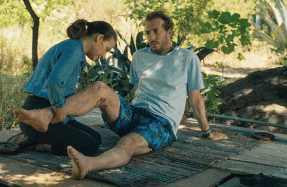
“The fact that at one time there was a camera in front of some people, which made them act in a certain way, and everything they may have thought or said or done at that time no longer has any importance. It is dead and gone; the only thing that counts is what remains, and what remains is a crystallization of it…It’s the moment when you pass from the stage of raw recorded reality into the dimensions of a film: that’s the point where you have the greatest responsibility, because that is when the film—whether you like it or not—is going to start to ‘say’ something. But it, itself, must say it, not me nor anyone else.”
—Jacques Rivette on L’amour fou (1968), Cahiers du Cinéma no. 204
“Do not quench the Spirit.…Test everything; hold fast what is good.”
—Thessalonians 5:19, 21, as quoted in Vadim Kostrov’s Kometa
n 2021, the world was introduced to Vadim Kostrov, a young Russian filmmaker with an entire body of work waiting in deep freeze. One film after another appeared in a matter of months, at such a pace that a proper collective accounting could be made. Though these six works vary greatly in texture and tone, style and content, what unites them is Kostrov’s detached, universal perspective on the passing of time. Today he is 23 years old, though he began to make films in 2017 after moving from Nizhny Tagil, a prominent industrial town in the Urals, to Moscow, where he lived in a hostel and worked intermittently as a food delivery courier after dropping out of VGIK, the film school at which so many great Soviet, Russian,




